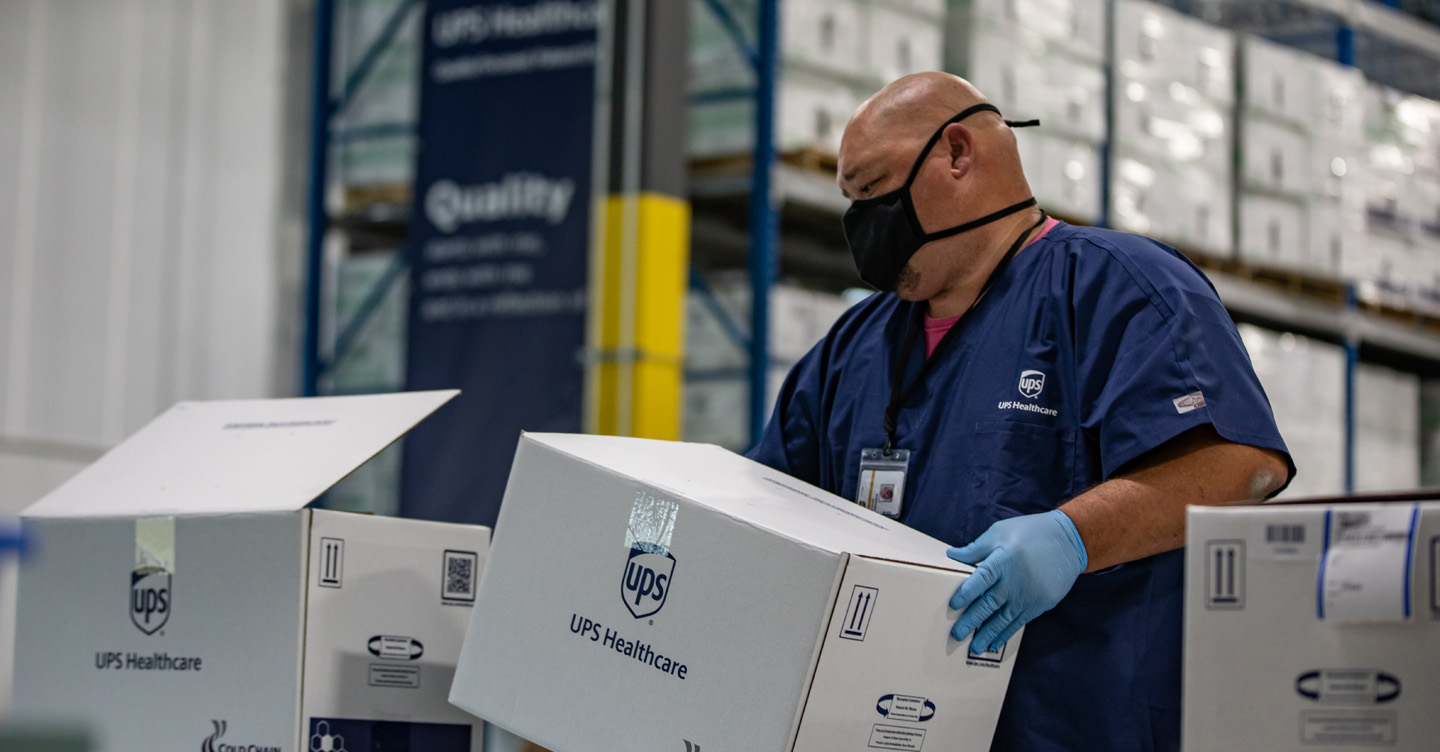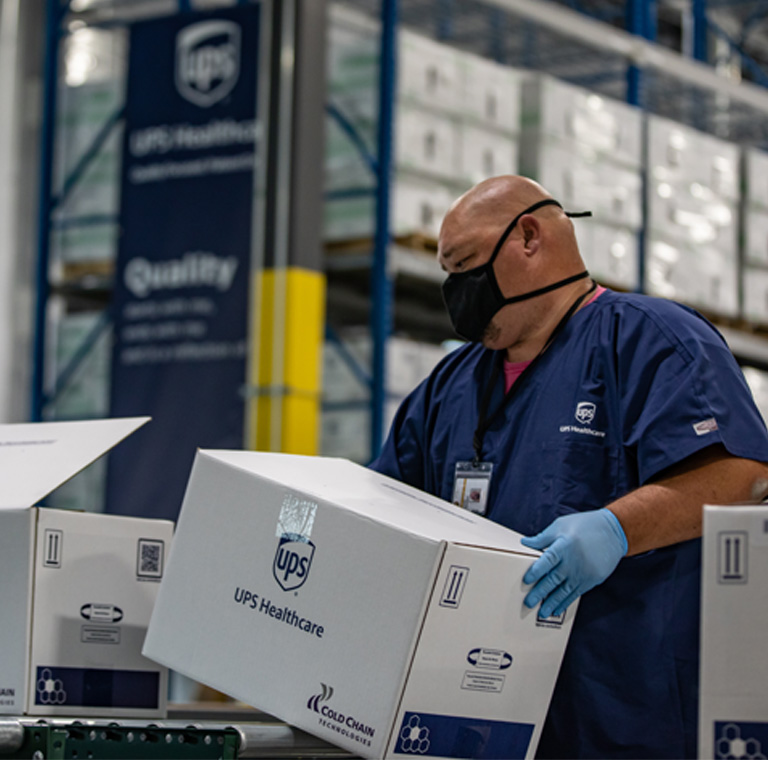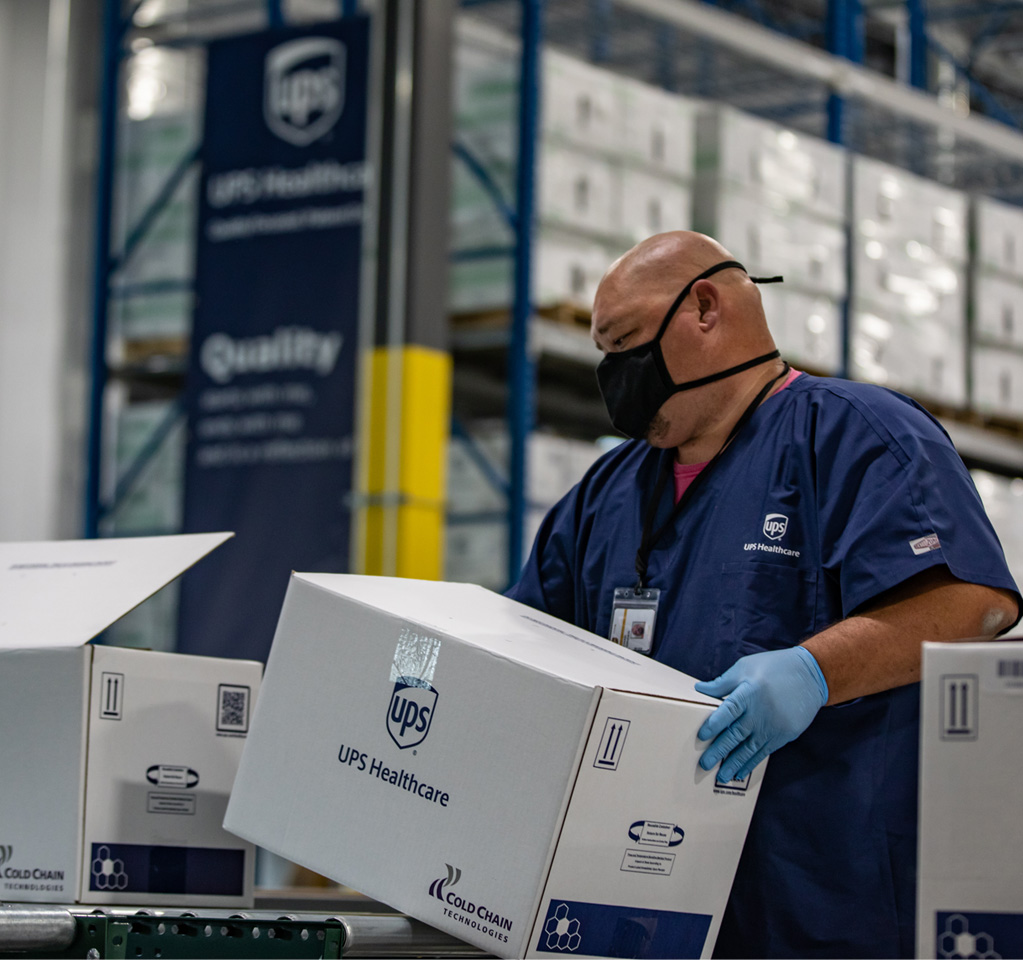- Extends Healthcare Logistics Industry Leadership with Purpose-Built Cold Chain Facilities Throughout Europe and Asia-Pacific
- Opens First-of-its-Kind, End-of-Runway, Reusable Cold Chain Packaging Center
ATLANTA – UPS Healthcare (NYSE: UPS) today announced a new set of facilities and continued round of global expansion designed to bring unprecedented capabilities to global healthcare logistics customers.
One of the newest cold chain and packaging centers opens in Louisville, Kentucky, located on the UPS Healthcare campus near the Worldport® global air hub. Combined with ongoing expansion throughout Europe and the Asia-Pacific region, UPS Healthcare continues to build the world’s most sophisticated healthcare logistics capabilities.
“Our decades of experience create the perfect foundation for continued investment in capabilities and infrastructure around the world,” said Chief Sales and Solutions Officer and Executive Vice President, UPS Global Healthcare Kate Gutmann. “UPS Healthcare is on a mission to provide our customers with even higher performance, greater cost efficiencies, and more sustainable shipping options.”
The new Louisville facility joins existing cold chain facilities around the world, and is part of an ongoing, aggressive strategy by UPS Healthcare to expand its global footprint. The expansions bring increased flexibility and efficiency to customers, as well as unmatched cold chain capabilities.
UPS’s success with COVID-19 vaccine delivery is creating long-term value in the future delivery of new drugs, especially biologics. The company’s temperature-controlled facilities are designed to handle biologically derived drugs, such as vaccines, at any temperature. According to the Biopharma Cold Chain Sourcebook, cold chain trends show 48 percent expected growth between 2018 and 2024 for medicines that require at least 2 to 8 degrees Celsius storage and shipping.
The overall market for cold chain services (packaging, transportation, and data services) is expected to significantly accelerate over the next three years, growing up to 24 percent by 2024, after posting a 10 percent increase from 2019 to 2020. Against this backdrop, UPS Healthcare’s Cold Chain expertise is critical for the delivery of future medicines supporting the growing needs of customers around the world.
“We are building on our expertise and leadership displayed throughout the pandemic by continuing to develop new capabilities in cold chain logistics around the world,” said UPS Healthcare President Wes Wheeler. “With new facilities and capabilities, UPS Healthcare is better positioned to safely manage the growing number of temperature-sensitive biologic drugs, as well as cell and gene treatments currently in development.”
The newest facility, named the ‘Cold Chain Packaging Center of Excellence,’ is the company’s first U.S.-based logistics facility to offer reusable cold chain packaging options for customers, utilizing the entire life cycle of temperature-controlled packages and contributing to a circular economy.
“Not only does the new facility expand our offerings for cold chain logistics, but the reusable packaging cuts down on single-use waste, creating more sustainable options and driving significant cost savings for our customers,” said Chief Corporate Affairs Officer Laura Lane, who also has responsibility for UPS’s sustainability efforts.
UPS Healthcare now operates 125 GDP/GMP facilities in 34 countries around the world. Learn more about UPS Healthcare and its offerings here: www.ups.com/healthcare.
About UPS Healthcare
UPS Healthcare delivers unparalleled healthcare logistics expertise to its customers around the world. UPS Healthcare has 11+ million square feet of cGMP and GDP-compliant healthcare distribution space globally. Services include inventory management, cold chain packaging and shipping, storage and fulfillment of medical devices, and lab and clinical trial logistics. UPS Healthcare's global infrastructure, its UPS® Premier visibility service, its track and trace technology, and its global quality system are well-suited to meet today's complex logistics demands for the pharmaceutical, medical device, and laboratory diagnostic industries.


